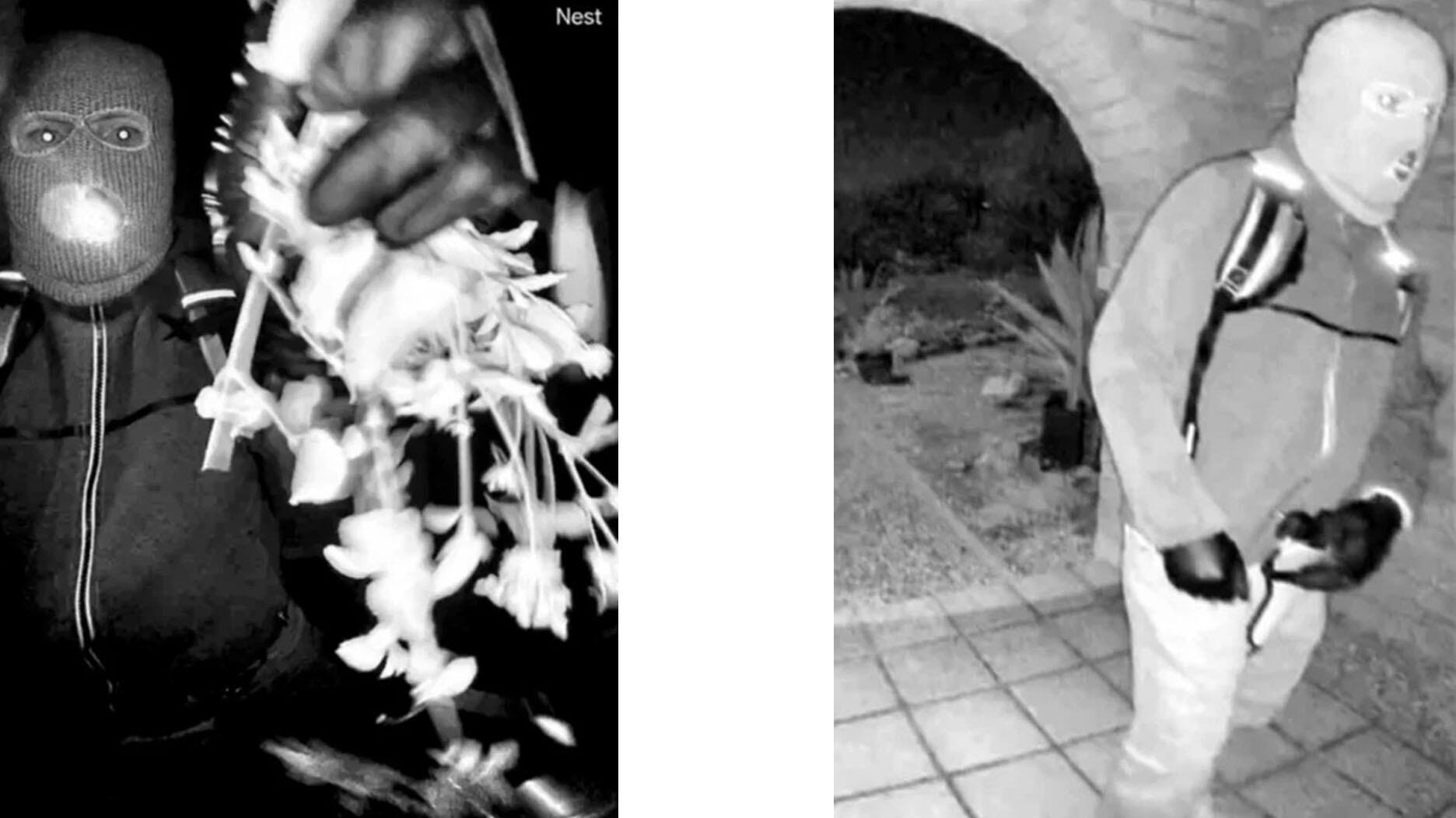In a 6-3 ruling, the court said the president exceeded his authority when imposing sweeping tariffs under IEEPA.
In the Wake of the Cyberattack on Stuller, 5 Tips on Cybersecurity
From password security to tracking-number safety, here are five cybersecurity tips to keep in mind.

New York—Stuller was hit by a cyberattack over Thanksgiving weekend that delayed shipments, shut down the phone lines, and created other operational issues amid the holiday rush.
It took a few days for the massive manufacturer and supplier to get same-day shipping services on in-stock items and the phone lines back up and running.
While Stuller said there was no indication that sensitive business information was compromised—noting that customer credit cards on file are tokenized, encrypted, and not housed at Stuller—the stressful disruption came at the most critical time of the year for the supplier, underscoring the need for businesses today to invest in cybersecurity.
Stuller did not provide additional details on the specifics of the cyberattack.
In a COVID-19 world, and even before then, the ability to connect with customers online is crucial, whether one is running a consumer-facing retail store or a business-to-business operation.
Here are five expert tips on how to navigate the online world safely.
Ensure employees are adequately protected as they work from home.
Law enforcement officials have seen an uptick in fraud and hacking now that more people are working from home on computers or smartphones less secure than those in their office, the Jewelers’ Security Alliance said in a recent memo.
Be sure all employees’ devices have updated protections in place, including firewall, malware, and spam protection.
Stop using the same password for everything.
JSA advises having “strong, unique” passwords.
When the password for everything is the same, it may be easy to remember, but it’s also easy for hackers to gain access to several accounts in one swoop.
Users may also want to set up two-factor or multi-factor authentication.
“If a cybercriminal were to gain access to your log-in credentials, they wouldn’t be able to compromise your account if they didn’t have access to a passcode that would be sent to your phone,” explained Ryan Ruddock, senior research assistant at JSA, during an October webinar on online scams.
If you’re unsure about an email, just don’t open it.
Be wary of email phishing scams, which are attempts to trick users into giving criminals access to personal information.
“The intention behind phishing is to acquire personally identifiable information. So that’s going to include credit card information, social security numbers, account log-in credentials, and, in some cases, intellectual property,” said Ruddock.
It’s the most common type of cybercrime, said Ruddock, noting that it doesn’t target specific individuals.
Criminals will send a mass email in the
Misspellings and poor grammar are red flags to look for in phishing emails, he said, but also be wary of any email sent with a sense of urgency, pressuring users to act now, think later.
If an email doesn’t look trustworthy, don’t open it or click on any links. Delete it.
If a link in what is believed to be a phishing email is clicked, Ruddock recommended disconnecting from the WiFi, which could prevent malware from being installed on your computer, running an anti-virus scan, and changing passwords.
Also, be on the lookout for email spoofing, which involves an email sent from an address that’s almost, but not quite, identical to a genuine email address for a contact.
An email might look like it’s coming from longtime vendor, such as JohnSmith@jewelry.com, but upon closer inspection, it may actually read JohnSmith@jewellry.com.
If anything about the email seems off, it’s best to contact the vendor or customer by phone and be sure the request is genuine, JSA said.
Be careful with tracking numbers.
For any questions about a transaction, it’s best to reach out to the customer by phone via the number given at the time of purchase.
“You do not want to use the number given to you by the caller,” advised Ruddock.
JSA does not advise giving out the tracking number on a shipment. If a tracking number of a package is given to someone other than the customer, it may be possible for that person to redirect the merchandise.
JSA has also seen cases where a caller, pretending to be from a retail store, contacts a supplier and requests that a high-end item be sent to the store. The caller later diverts the shipment to a different address.
Set a limit on the number of times an address can be changed on a shipment, said Ruddock, and be clear with the shipper about how change of address requests should be handled.
Some companies, he said, have specified to their shipping company that if there are any attempts to change the address, the package should instead be returned to the company.
Make sure employees know the company’s cybersecurity policy.
Every company should have a written cybersecurity policy that is read and signed by employees, said JSA.
Be sure to regularly review the cyber-protocols with employees so everyone is on the same page.
Select cyber security firms also offer tests that allow employers to determine their employees’ ability to avoid phishing attacks and other scams.
Provide additional training to those employees who need it, advised Ruddock.
For more information about cybersecurity, visit the JSA website.
The Latest

Smith encourages salespeople to ask customers questions that elicit the release of oxytocin, the brain’s “feel-good” chemical.

JVC also announced the election of five new board members.

Launched in 2023, the program will help the passing of knowledge between generations and alleviate the shortage of bench jewelers.

The brooch, our Piece of the Week, shows the chromatic spectrum through a holographic coating on rock crystal.


Raised in an orphanage, Bailey was 18 when she met her husband, Clyde. They opened their North Carolina jewelry store in 1948.

Material Good is celebrating its 10th anniversary as it opens its new store in the Back Bay neighborhood of Boston.

Criminals are using cell jammers to disable alarms, but new technology like JamAlert™ can stop them.

The show will be held March 26-30 at the Miami Beach Convention Center.

The estate of the model, philanthropist, and ex-wife of Johnny Carson has signed statement jewels up for sale at John Moran Auctioneers.

Are arm bands poised to make a comeback? Has red-carpet jewelry become boring? Find out on the second episode of the “My Next Question” podcast.

It will lead distribution in North America for Graziella Braccialini's new gold pieces, which it said are 50 percent lighter.

The organization is seeking a new executive director to lead it into its next phase of strategic growth and industry influence.

The nonprofit will present a live, two-hour introductory course on building confidence when selling colored gemstones.

Western wear continues to trend in the Year of the Fire Horse and along with it, horse and horseshoe motifs in jewelry.
![A peridot [left] and sapphires from Tanzania from Anza Gems, a wholesaler that partners with artisanal mining communities in East Africa Anza gems](https://uploads.nationaljeweler.com/uploads/cdd3962e9427ff45f69b31e06baf830d.jpg)
Although the market is robust, tariffs and precious metal prices are impacting the industry, Stuart Robertson and Brecken Branstrator said.

Rossman, who advised GIA for more than 50 years, is remembered for his passion and dedication to the field of gemology.

Butterfield Jewelers in Albuquerque, New Mexico, is preparing to close as members of the Butterfield family head into retirement.

Paul Morelli’s “Rosebud” necklace, our Piece of the Week, uses 18-karat rose, green, and white gold to turn the symbol of love into jewelry.

The nonprofit has welcomed four new grantees for 2026.

Parent company Saks Global is also closing nearly all Saks Off 5th locations, a Neiman Marcus store, and 14 personal styling suites.

It is believed the 24-karat heart-shaped enameled pendant was made for an event marking the betrothal of Princess Mary in 1518.

The AGTA Spectrum and Cutting Edge “Buyer’s Choice” award winners were announced at the Spectrum Awards Gala last week.

The “Kering Generation Award x Jewelry” returns for its second year with “Second Chance, First Choice” as its theme.

Sourced by For Future Reference Vintage, the yellow gold ring has a round center stone surrounded by step-cut sapphires.

The clothing and accessories chain announced last month it would be closing all of its stores.

The “Zales x Sweethearts” collection features three mystery heart charms engraved with classic sayings seen on the Valentine’s Day candies.


























